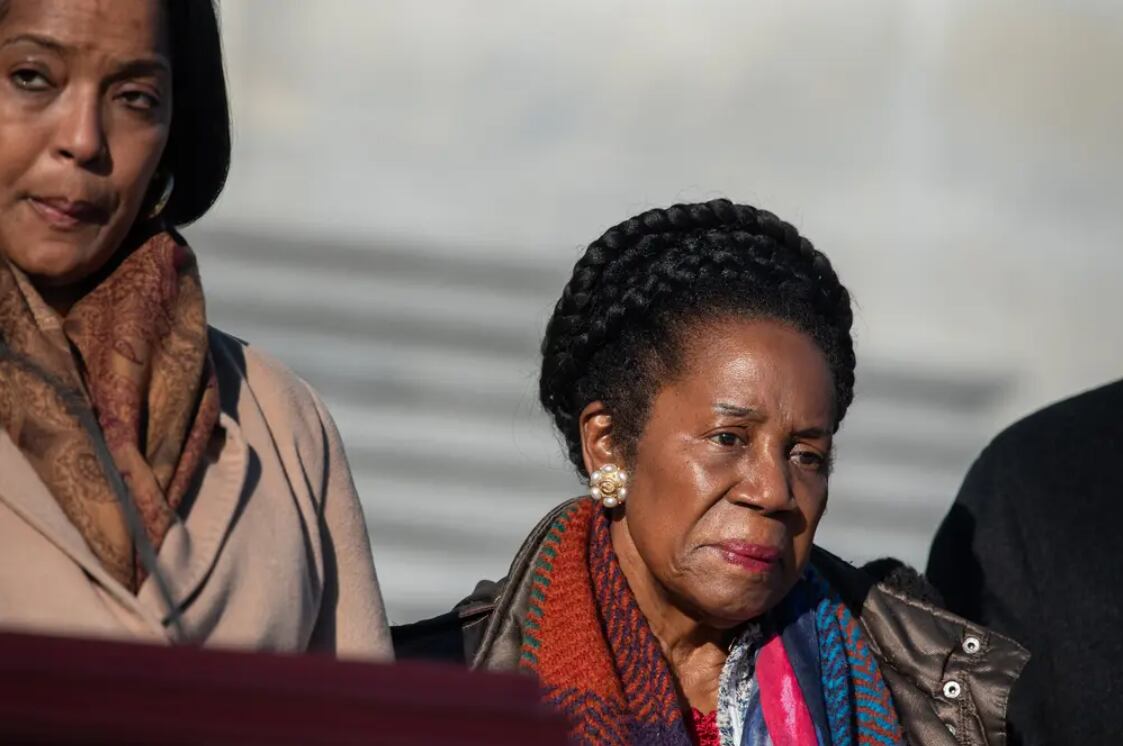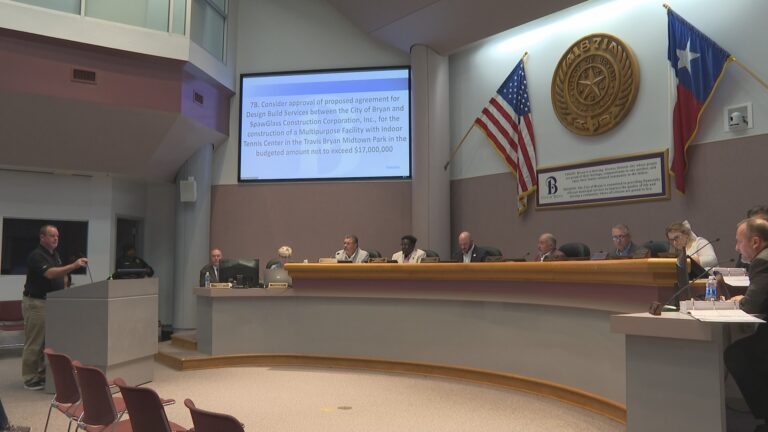Democrats running for Sheila Jackson Lee’s congressional seat debate who is best suited to replace her
“Democrats running for Sheila Jackson Lee’s congressional seat debate who is best suited to replace her” was first published by The Texas Tribune, a nonprofit, nonpartisan media organization that informs Texans — and engages with them — about public policy, politics, government and statewide issues.
Seven candidates vying to succeed Sheila Jackson Lee in Congress all pitched themselves on Saturday as the best equipped to bring home federal dollars, pass progressive policies and maximize Democratic turnout.
But few policy differences emerged as the seven – including former Houston Mayor Sylvester Turner, former Houston City Council member Amanda Edwards and state Reps. Jarvis Johnson and Christina Morales — appeared in the only scheduled debate ahead of a critical vote to decide who will replace the late Houston congresswoman on the November ballot.
Jackson Lee died July 19 at age 74 amid a battle with pancreatic cancer, having already won the Democratic primary earlier this year. Under Texas law, a committee of precinct chairs from Jackson Lee’s 18th Congressional District will pick a new candidate Tuesday to appear on the Nov. 5 ballot. The replacement nominee will be heavily favored to defeat Republican Lana Centonze in the solidly blue district.
At Saturday’s debate, most of the friction centered on whether the district would be best suited electing the 69-year-old Turner — who is seen as a frontrunner and has pledged to serve a maximum of two terms — or someone else.
Turner, a 27-year veteran of the Texas House who went on to be Houston’s mayor for eight years, pointed to his relationships and institutional knowledge of flood control projects and other district needs as a reason he should be elected. He also vowed to make sure the 18th Congressional District got its fair share of federal money for those projects, before soon passing the torch to someone else.
“I offer myself as a bridge from where we are now to that future generation of leaders,” Turner said.
His rivals for Jackson Lee’s seat said the district would be better served by someone who could immediately start building seniority in Congress, where those who serve the longest tend to wield the most power over the flow of legislation and money. Morales, D-Houston, said it would be “a disservice to this seat to not have somebody who’s here to serve for at least 10 years, if not more.”
“I know that seniority matters,” she said. “This community cannot afford to have somebody who’s only here for two to three terms.”
Edwards, a former at-large member of Houston City Council, is seen as one of Turner’s main rivals for the nomination. She unsuccessfully challenged Jackson Lee in the March primary, painting herself as a fresh face who would be more in touch with the district and its young voters — an argument she reprised at Saturday’s debate.
“We can either stay in place, or we can choose to move forward in a way that is bold, that is innovative, and creates a community where every single person, no matter what their background, has the opportunity not just to get by in our community, but to thrive in our community,” she said.
The 42-year-old voiced support for the idea of term limits, saying they make way for “new voices, new ideas.” If elected, though, she did not pledge to serve a limited number of terms herself.
Saturday’s debate included just seven of at least 15 potential candidates who have contacted the Harris County Democratic Party to say they are interested in running for Jackson Lee’s seat in the precinct chair election.
Separately, Gov. Greg Abbott has called a special election on Nov. 5 to decide who will serve out the final weeks of Jackson Lee’s current term, which ends Jan. 3. Jackson Lee’s daughter, Erica Lee Carter, said this week she is “strongly considering” running to complete her mother’s term.
Carter and her brother, Jason Lee, have endorsed Turner, along with a host of local Democratic officials. Turner cited the endorsements in his opening statement Saturday, arguing they represent “the diversity of our city.”
Another Turner rival is Johnson, the state lawmaker who succeeded him in the state House in 2016. Johnson, D-Houston, touted his record in Austin promoting vocational education and tackling sickle cell anemia, and in Congress he said he would support ban-the-box laws, which bar employers from asking about the criminal history of job applicants.
Johnson, 52, said his top priority would be ramping up voter turnout among the district’s overwhelmingly Democratic base.
“We have to make sure that everyone understands that they are important to this process,” Johnson said. “We can’t just simply allow just a small number of people to participate and make the decisions for the majority.”
Johnson has previously argued that Turner is too old to run and should instead “pass the baton and counsel the next generation of leaders” in the district. He has also questioned Turner’s health, telling The Texas Tribune that electing the former mayor could put the district “back in the same position that we just came from” with Jackson Lee’s death.
Turner revealed in 2022 that he had secretly been recovering from bone cancer, and is now cancer-free.
Turner said he received “some of the best care that one can find” and was only more motivated now to fight for laws expanding health care access. He also gave an impassioned defense of his health and ability to continue holding public office.
“Many people think cancer means cancel your life. No, cancer does not mean the end,” Turner said. “We need to destigmatize cancer. That’s why a lot of people don’t talk about it, because people use it in the wrong way. So, I’m here, I’m eager, I’m ready to serve.”
Also onstage at Saturday’s debate was Corisha Rogers, the leadership engagement and support manager for the Harris County Democratic Party; Robert Slater, a chef and businessman who also ran against Jackson Lee in the primary, winning about 3% of the vote; and Cortlan Wickliff, the associate vice provost for academic affairs at Rice University. Each pitched themselves as political outsiders in contrast to the elected officials next to them on stage.
“I am fighting for this district because too many times we’ve been exploited and taken advantage of, and told the same old things,” Slater said. “But the same old problems that actually existed with some of these people on stage, it was on their watch. … We need a fighter. We need an activist. We need somebody that’s not going to play, that’s going to stand on business.”
Edwards said making housing affordable would be her priority in Congress. She also said she wants to “overhaul and transform” the process of disaster recovery, often a headache of a process for many Houston residents following storms.
“What I learned is that disaster recovery in our country does not work for its people,” Edwards said, pointing to the snail-like flow of federal aid to the Houston area after Hurricane Harvey and other disasters. “I will make sure that we are not just in a position where we’re playing defense. We cannot stop the rain from falling, but we can be prepared to catch it.”
Morales, 56, said she would make education her top priority in Congress, pointing to its influence on nearly every other issue that came up during the debate, from criminal justice to attracting jobs to the district. She noted she has been an outspoken opponent of the state’s takeover of the Houston Independent School District, the state’s largest.
“I am the most progressive legislator in Harris County, the second [most] in the state House,” said Morales, who has served in the state House since 2019. “What holds this community together are its Democratic and progressive values.”
The 18th Congressional District includes downtown Houston and several of the city’s historic neighborhoods, including Third Ward and parts of The Heights and Acres Homes. It also takes in George Bush Intercontinental Airport and swaths of northeast Houston and unincorporated Harris County.
Rice University has been a financial supporter of The Texas Tribune, a nonprofit, nonpartisan news organization that is funded in part by donations from members, foundations and corporate sponsors. Financial supporters play no role in the Tribune’s journalism. Find a complete list of them here.
This article originally appeared in The Texas Tribune at https://www.texastribune.org/2024/08/10/texas-sheila-jackson-lee-congress-debate-election/.
The Texas Tribune is a member-supported, nonpartisan newsroom informing and engaging Texans on state politics and policy. Learn more at texastribune.org.







